Our bodies are reflections of nature, we experience in our bodies cycles similar to the seasons. According to Chinese medicine, each internal organ is associated with an element and season. Mantak Chia explains, “The five elemental phases are expressions of energy that can be observed in nature and throughout the universe. On Earth, they represent the four seasons: winter, spring, summer, and fall with the fifth meditating element of Earth itself represented as late summer. Within the human body, they affect the five sets of organs: the kidneys/bladder (water), the liver/gallbladder (wood), the heart/small intestine (fire), the lungs/large intestine (metal), and the pancreas/spleen/stomach (earth). The forces that influence the cosmos are identical to those that affect nature and our bodies.”
The internal organs that are associated with autumn are the lungs and the lungs’ partner organ, the large intestine.
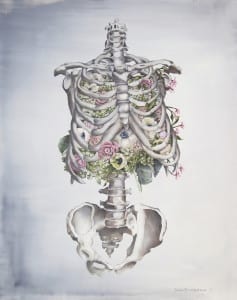
Autumn is a time of letting go. As the trees let go of their leaves and their life force concentrates deep into their roots, it’s a time for us to let go of what no longer serves us and turn our energy inward as we gather for the approaching winter. We need to let go in order to take in, just as the lungs and the large intestine are constantly doing: taking in nutrients and oxygen and releasing carbon dioxide and waste matter. Letting go also encompasses emotional baggage. If you’re experiencing constipation and ruled out diet or other typical possible causes, ask yourself what in your life you’re holding onto that is not serving you? It may be time to release old habits, grievances, relationships, or material stuff from your life.

When the energy (chi or life force) doesn’t flow through the internal organs because of poor diet, stress, drugs, accidents, surgery, or misalignment of the frame of the body or internal organs, sickness can result. Negative emotions can also cause damage to the body and vice versa, lack of flow can result in negative emotions. When I say “negative emotion,” keep in mind that I don’t believe that emotions are negative. Emotions serve a purpose. For instance, anger can help us set boundaries or fuel us to make changes, sadness and grief can be cleansing, and fear can protect us. It’s only when we hold on to these emotions and they influence how we see the world and dictate how we move through life that they become destructive. If we are constantly viewing the world through the veil of our past grievances or fears, we move through life armored and closed off. Closed off to others and to the internal flow of chi.
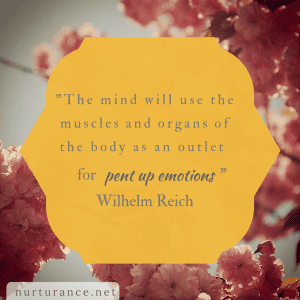
“You may be able to fight in battles in a suit of armor, but when you are wearing one all the time, it becomes impossible to dance.”- Wilhelm Reich.
Sounds have unique vibrational qualities, and those sounds resonate with particular organs. Each organ has a particular sound that helps release stress from that organ. The healing sound for the Lungs is Ssssssssssssssss (tongue behind the teeth).
When the lungs are out of balance, emotions of grief, sadness, and depression may manifest. When in balance, the lungs can hold feelings of courage.
Constipated? Step one, get your bowels moving. Learn more about Colon Health in the Make Shift Happen course.
Lung Chi Nei Tsang Meditation
Sit with your pelvis neutral (sit on your sit bones). Rest the back of your hands on your thighs. Smile into your lungs by imagining a healing white light infused with your smiling energy fill your lungs. Take a deep breath and raise your arms up, and as your hands reach eye level rotate the palms up toward the sky, fingers pointing toward the fingers of the opposite hand. Keep the elbows rounded out to the side without straightening the arms.
Part your lips slightly. Look up, push your palms upward and out as you slowly exhale through your teeth making the “Sssssssssss” sound. You may start by making the sound aloud and then practice making the sound so softly that only you can hear it. Picture excess heat, sick energy, grief, sadness and depression expelled with the sound.
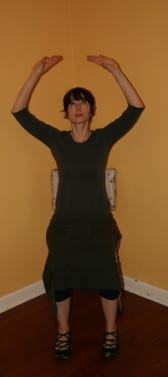
When you have exhaled completely, rotate your palms down to your thighs, relax your shoulders. Rest and be present with your inner environment. Scan your lungs with your mind’s eye and listen deeply, giving yourself the attention you would a good friend in need. Smile into your lungs. If another emotion other than genuine smiling energy is in the forefront, that’s ok, just be present with it, not trying to change or fix anything. Try to keep the thinking mind out of it, just feel and allow movement. Breathe fully, expanding the ribcage in a circumference.
Repeat 6, 9, 12, or 24 times. Practice more often to alleviate colds, flu, depression, sadness, asthma, and other lung problems.
 Doing these meditations will help move chi through the organs and help them function better and will help connect us to our internal wisdom. We tend to override the signals our bodies give us instead of changing our diet or habits. For instance, if we have bad breath, we may suck on breath mints. If we are constipated, we may take a laxative. If we are in pain, we take a pain pill. If we are angry, we may drink alcohol or turn to other ways of avoidance instead of letting the emotion run its cycle. When we take the time to tune into our bodies and listen deeply and compassionately, as we would listen to a good friend in need, we develop a deeper understanding of the root cause and therefore can take appropriate action to obtain lasting health.
Doing these meditations will help move chi through the organs and help them function better and will help connect us to our internal wisdom. We tend to override the signals our bodies give us instead of changing our diet or habits. For instance, if we have bad breath, we may suck on breath mints. If we are constipated, we may take a laxative. If we are in pain, we take a pain pill. If we are angry, we may drink alcohol or turn to other ways of avoidance instead of letting the emotion run its cycle. When we take the time to tune into our bodies and listen deeply and compassionately, as we would listen to a good friend in need, we develop a deeper understanding of the root cause and therefore can take appropriate action to obtain lasting health.
In the following meta-analysis of randomized controlled trials, mind-body exercises such as tai chi, qi gong, and yoga improved exercise capacity and some measures of lung function in participants with chronic obstructive pulmonary disease.
Mind-body exercise for patients with stable COPD on lung function and exercise capacity: a systematic review and meta-analysis of RCTs


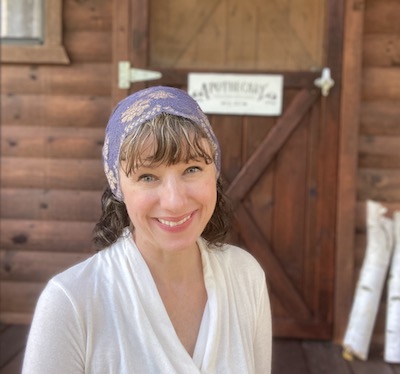
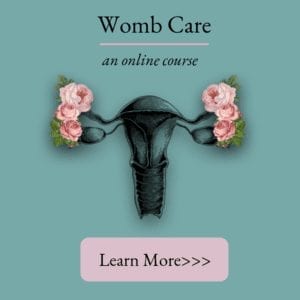
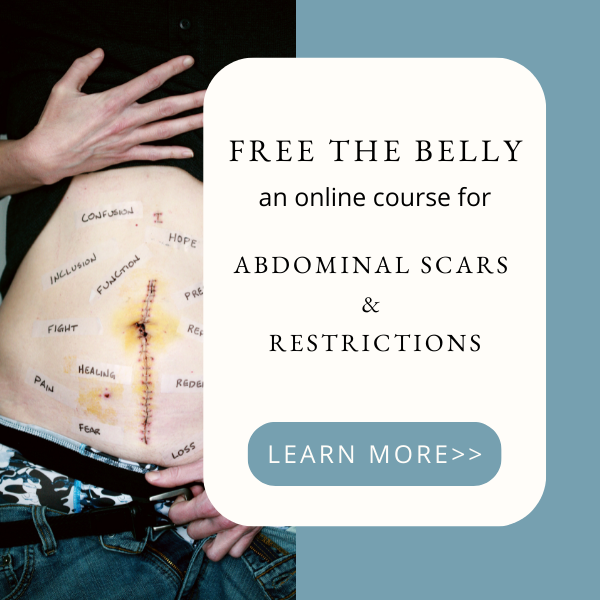
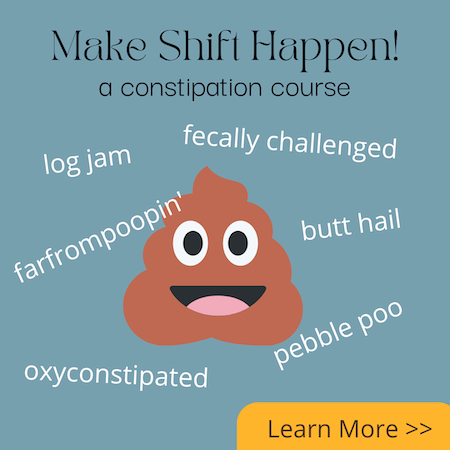

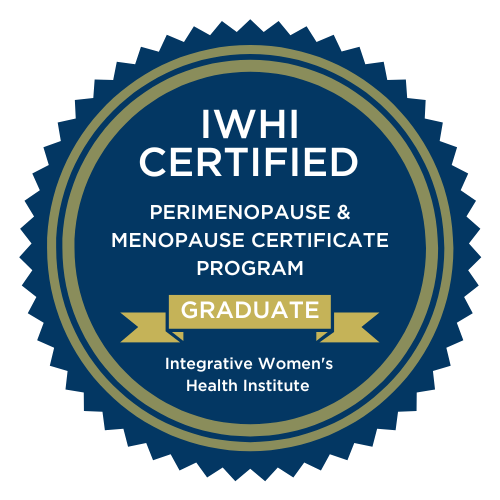
Thanks Barbara. I really enjoyed your informative blog. I will be sharing it with people I know. Keep sharing your wisdom with us!!!!
Thank you Caroline!
Love, love, love this. Going to be doing this more often. Thanks for the tidbit!
Love this Barbara, thank you!
Well, I was sceptical, but thoguht I’d give it a try.
Let’s just say: I’m not sceptical anymore 😉
I’ve been carrying shoulder and neck tension for years. I’ve done six repeats of this just now and I can already feel things loosening up: muscles and emotional energy.
I’m going to take a break for a cup of tea and some relax time, then do some more.
Thank you.
PS the psoas release also works a treat.
Thank you. I have learned so much from your blog. This couldn’t come at a better time for me. I lost my younger sister this year and ended up with pneumonia 2 times and then H1n1. It totally makes sense now because I was overwhelmed with sadness and grief. I guess my lungs had no defense. I will start with this meditation, right away.